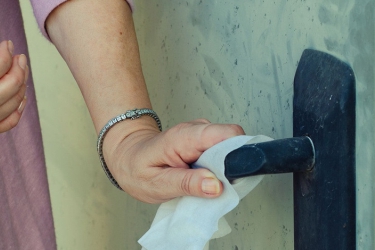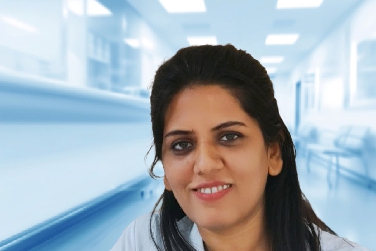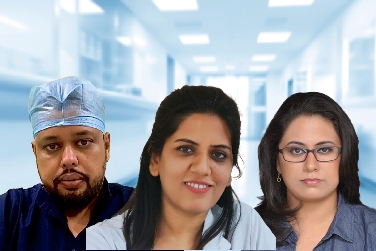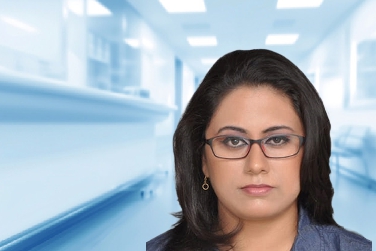
People with obsessive-compulsive disorder have obsessions and compulsions that the individual feels driven to perform in response to an obsession. The obsessions and compulsions such as hand washing/cleaning, checking on things and mental acts like counting are problematic. They are time consuming , cause significant emotional distress, or significantly interfere with a person’s daily activities such as social interactions. Some people with mild OCD improve without treatment. More moderate or severe OCD usually requires treatment. There may be periods of time when the symptoms get better and also times when symptoms get worse, such as when a person is stressed or depressed. But without the right treatment, OCD is often chronic. For people with OCD, thoughts are persistent and intrusive, and the repetitive behaviours are rigid. Most people with OCD know or suspect that their obsessional thoughts are not realistic or true, but they nonetheless have difficulty disengaging from the obsessive thoughts or stopping the compulsive behaviours.

Obsessions
Obsessions are unwanted, intrusive, recurrent, and persistent thoughts, urges, or images that cause distressing emotions such as anxiety, fear, or disgust. Most people with OCD recognize that these thoughts are a product of their mind and that they are excessive or unreasonable. However, the distress that these intrusive thoughts cause cannot be resolved by logic or reasoning. Most people with OCD try to ease the distress of the obsessional thinking by doing compulsions.
Compulsions
:Compulsions are repetitive behaviours or mental acts that a person feels driven to perform in response to an obsession. The behaviours typically prevent or reduce a person's distress related to an obsession temporarily, and they are then more likely to do the same in the future. Compulsions may be excessive responses that are directly related to an obsession (such as excessive hand washing due to the fear of contamination) or actions that are completely unrelated to the obsession. In the most severe cases, a constant repetition of rituals may fill the day, making a normal routine impossible.
Treatments
:Patients with OCD who consult Dr Rashmi Mishra at Palaash Hospital in Katihar usually experience improvement in OCD symptoms as well as increased quality of life and improved functioning. Dr Rashmi Mishra’s treatment for OCD at Palaash Hospital, Katihar in Bihar usually improves an individual's ability to function at school and work, develop and enjoy relationships, and pursue leisure activities.
The most common treatment that Dr Rashmi Mishra offers to OCD patients at Palaash Hospital is a type of Cognitive Behavioural Therapy (CBT) known as exposure and response prevention (ERP). There is more research evidence supporting the effectiveness of ERP for OCD than there is for other kinds of therapy. During treatment sessions, patients are gradually exposed by Dr Rashmi Mishra to feared and avoided situations or images related to their obsessions without performing their rituals. For example, a patient who checks the door lock 30 times before leaving the house to prevent a theft learns to gradually cut back on the number of times they check before leaving. A class of medications known as selective serotonin-reuptake inhibitors (SSRIs) are the other first-line treatment for OCD. Many research studies have shown that these medications are usually effective for OCD, and that they are more effective than other types of medication. Getting enough good-quality sleep, eating healthy food, exercising, and spending time with others can help to improve overall mental and physical health.

When it comes to treatment for various psychological and psychiatric conditions including Obsessive Compulsive Disorder (OCD), whether in adults or children Dr Rashmi Mishra at Palaash Hospital is one of the best. With vast experience in treatment and management of various mental disorders Dr Rashmi Mishra has created a stature for herself. Patients from all across Bihar, West Bengal and North East India come to her for treatment of various conditions including OCD. The best part about treatment of Dr Rashmi Mishra is that she will try and understand the root cause of the problem and try to address it through various counselling sessions. For her medications are just the support to quicken the treatment and make it more effective for the best results.

Palaash Hospital at Katihar is promoted by a group of doctors including Urologist Dr Subhabrata Ganguly, Psychiatrist Dr Rashmi Mishra, Pediatrician Dr Nivedita Mishra and Physician Dr K.K.Mishra. The idea behind Palaash Hospital is to create a world class healthcare facility where the patients get the complete range of healthcare under one roof. Palaash hospital will continue to add to its infrastructure by investing in cutting edge technology with every passing year.

Palaash Hospital offers medical and surgical treatments in the fields of Urology, Nephrology, General & Laparoscopic Surgery, Obstetrics & Gynecology, Pediatrics, Neonatology, Psychiatry and Internal Medicine. The hospital has round the clock services for emergency conditions. OPD services are available from 9 am to 2 pm and again from 5 pm to 7 pm. The hospital has the facility of ICU, Ward and Private Single Rooms. You get reasonable pricing with us for all the treatments.

The Hospital has deployed cutting edge technology in order to achieve superior medical and surgical outcomes. The hospital has state of art operation theatres with Laparoscope and Ureteroscope. The hospital has the facility of Laser machine for kidney stone treatment. Most of the surgeries are done using minimal access technique. The hospital stay is short and the recovery is much quicker. Pathological services are provided by NABL accreditated Maurya Labs.

PHONE ASSIST
|
|
OUR LOCATION |
|
| EMAIL US |